 W
WOn 24 July 2016, a Syrian asylum seeker armed with a döner knife attacked his girlfriend and bystanders in Reutlingen, Germany, killing his girlfriend, a Polish woman, and wounding two other people in the forearm and head, before being struck accidentally by a car and arrested by police.
 W
WAl-Abbas ibn Ali ibn Abi Talib, also known as Abu al-Fadhl and Qamar Bani Hashim, was a son of Ali and Fatima bint Hizam, commonly known as Umm al-Banin.
 W
WAlbert I of Habsburg, the eldest son of King Rudolf I of Germany and his first wife Gertrude of Hohenberg, was a Duke of Austria and Styria from 1282 and King of Germany from 1298 until his assassination.
 W
WAli ibn Abi Talib was a cousin and son-in-law of the Islamic prophet Muhammad, who ruled as the fourth caliph from 656 to 661. He is one of the central figures in Shia Islam and is regarded as the rightful immediate successor to Muhammad as an Imam by Shia Muslims.
 W
WDr. Manuel Enrique Araujo was President of El Salvador from 1 March 1911 through 8 February 1913.
 W
WJosé Nazario Benavídez was an Argentine soldier who rose to the rank of Brigadier General and played a leading role in the Argentine Civil Wars. He was Governor of San Juan Province, Argentina, for almost twenty years in the mid-nineteenth century. His lengthy political career during a period of great turbulence was due to the great respect in which he was held by enemies as well as friends. After leaving office he was imprisoned and then murdered by his guards.
 W
WKeith Henry Blakelock, a London Metropolitan Police constable, was murdered on 6 October 1985 during rioting at the Broadwater Farm housing estate in Tottenham, north London. The riot broke out after Cynthia Jarrett died of heart failure during a police search of her home, and took place against a backdrop of unrest in several English cities and a breakdown of relations between the police and some people in the black community.
 W
WAnicius Manlius Severinus Boëthius, commonly called Boethius, was a Roman senator, consul, magister officiorum, and philosopher of the early 6th century. He was born about a year after Odoacer deposed the last Western Roman Emperor and declared himself King of Italy. Boethius entered public service under Ostrogothic King Theodoric the Great, who later imprisoned and executed him in 524 on charges of conspiracy to overthrow him. While jailed, Boethius composed his Consolation of Philosophy, a philosophical treatise on fortune, death, and other issues, which became one of the most popular and influential works of the Middle Ages. As the author of numerous handbooks and translator of Plato and Aristotle, he became the main intermediary between Classical antiquity and following centuries.
 W
WM'Balia Camara was a Guinean independence activist. February 9th was named Guinean Women's Day in honour of her
 W
WThe Camden Town murder was a murder which took place in Camden Town, London in 1907. Robert Wood, an artist, was tried for the murder of prostitute Emily Dimmock and acquitted after a defence by Edward Marshall Hall.
 W
WCandaules, also known as Myrsilos (Μυρσίλος), was a king of the ancient Kingdom of Lydia in the early years of the 7th century BC. According to Herodotus, he succeeded his father Meles as the 22nd and last king of Lydia's Heraclid dynasty. He was assassinated and succeeded by Gyges.
 W
WBenigna Cardoso da Silva was a Brazilian Catholic child. In her childhood she was adopted following the deaths of her parents, and was noted for aiding in household chores and attending Mass on a regular basis. But she was better known for having been murdered after rejecting the sexual advances of Raimundo Alves Riberio, who was around her age, in order to protect herself as being chaste as she desired. She defended herself even to the point of Riberio killing her, using a machete that he carried on his person.
 W
WT. P. Chandrasekharan was an Indian politician who was the founder of Revolutionary Marxist Party (RMP), a breakaway group of Communist Party of India (Marxist). Born in Onchiam village in Kozhikode district in Kerala, he posthumously shot to national prominence after he was hacked to death on 4 May 2012; CPI(M)'s local organization is widely blamed as the perpetrator for the murder.
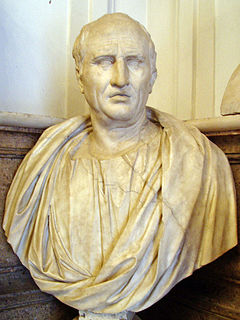 W
WMarcus Tullius Cicero was a Roman statesman, lawyer, scholar and Academic Skeptic who played an important role in the politics of the late Roman Republic and in vain tried to uphold republican principles during the crises that led to the establishment of the Roman Empire. His extensive writings include treatises on rhetoric, philosophy and politics, and he is considered one of Rome's greatest orators and prose stylists. He came from a wealthy municipal family of the Roman equestrian order, and served as consul in 63 BC.
 W
WAnita Lorraine Cobby was a 26-year-old Australian registered nurse and beauty pageant winner who was kidnapped while walking home from Blacktown railway station after dining out with two Sydney Hospital colleagues in Surry Hills, New South Wales, just before 10:00 p.m. on 2 February 1986, and subsequently sexually assaulted and murdered. Two days after being reported missing, Cobby's body was discovered on a rural farm in Prospect. Investigations led to the arrest of five men who were later convicted of her abduction, rape and murder on 10 June 1987 and each sentenced to life imprisonment, without the possibility of parole, on 16 June 1987.
 W
WSekula Drljević was a Montenegrin jurist, politician, orator and theoretician.
 W
WMarcella "Sali" Grace Eiler was an American social activist from Eugene, Oregon who was raped and murdered in Mexico two weeks before her 21st birthday. For the last three years of her life, she had been living and working intermittently in Oaxaca's provincial capital, Oaxaca de Juárez, as a dance teacher and social activist, and acted as an observer for an indigenous rights organization.
 W
WEnlil-nādin-apli, "Enlil (is) giver of an heir," ca. 1103–1100 BC, was the 5th king of the 2nd dynasty of Isin, and the 4th dynasty of Babylon. He was the son and successor of Nabu-kudurri-usur and was toppled by a revolt led by his uncle, Marduk-nādin-aḫḫē.
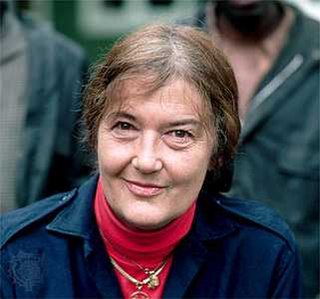 W
WDian Fossey was an American primatologist and conservationist known for undertaking an extensive study of mountain gorilla groups from 1966 until her 1985 murder. She studied them daily in the mountain forests of Rwanda, initially encouraged to work there by paleoanthropologist Louis Leakey. Gorillas in the Mist, a book published two years before her death, is Fossey's account of her scientific study of the gorillas at Karisoke Research Center and prior career. It was adapted into a 1988 film of the same name.
 W
WFlorian Geyer von Giebelstadt was a German nobleman, diplomat, and knight. He became widely known for leading peasants during the German Peasants' War.
 W
WGodfrey IV, known as the Hunchback, was a son of Godfrey the Bearded, whom he succeeded as Duke of Lower Lorraine in 1069, and Doda.
 W
WAdrian Mark Greenwood was a British historian, biographer, author, and art dealer, with a particular interest in nineteenth-century British military history. As well as hundreds of articles on antiques and collecting, he wrote two books on military history.
 W
WAhmed Rajib Haider was an atheist blogger from Bangladesh. He used to blog in the blogging communities namely Somewhereinblog.net, Amarblog.com and Nagorikblog.com and used the pseudonym Thaba Baba.
 W
WJacques Hamel was a French Catholic priest who served in Saint-Étienne-du-Rouvray. On 26 July 2016, Hamel was murdered during the 2016 Normandy church attack by two Muslim men pledging allegiance to the Islamic State of Iraq and the Levant while he celebrated Mass in his church.
 W
WHusayn ibn Ali ibn Abi Talib was a grandson of the Islamic prophet Muhammad and a son of Ali ibn Abi Talib and Muhammad's daughter Fatimah. He is an important figure in Islam as he was a member of the Household of Muhammad and the People of the Cloak, as well as the third Shia Imam.
 W
WJoseph Kalite was a Central African politician. As a government minister he either held the housing or health portfolio. Kalite, a Muslim, was reported to be killed by anti-balaka outside the Central Mosque in the capital Bangui during the Central African Republic conflict. He was killed with machetes on the day in Bangui after interim president Catherine Samba-Panza took power. At the time of the attack Kalite held no government position, nor did he under the Séléka rule. He was reported to have supported the rule of Séléka leader Michel Djotodia.
 W
WĐorđe Petrović, better known by the sobriquet Black George, or Karađorđe, was a Serbian revolutionary who led the struggle for his country's independence from the Ottoman Empire during the First Serbian Uprising of 1804–1813.
 W
WNaum Krnar was the secretary of Karađorđe, the leader of the First Serbian Uprising. Krnar was an ethnic Greek, hailing from Thessaly. He spoke several languages and worked as a merchant in Belgrade. With the outbreak of the uprising, Krnar, who had enriched himself through the trade of leather and fur, immediately joined Karađorđe in the organization, and became his personal secretary and chairman in the Serbian Ruling Council. It is unknown whether he fled Serbia with Karađorđe after the suppression by the Ottomans in 1813. As many of the Serbian commanders, he found refuge in the Russian Empire. He was a founding member of the Filiki Eteria (1814). On 12 July 1817, on the Feast of Saints Peter and Paul, he and Karađorđe secretly crossed the Danube into Serbia, in order to continue the Serbian Revolution, however, the leader of the Second Serbian Uprising, Miloš Obrenović, learnt of this and had them both beheaded, their heads sent to the Sultan in Constantinople. Karađorđe and Krnar stayed in a cottage in the village of Radovanj in the Smederevo nahija. Nikola Novaković, a henchman of Vujica Vulićević, first killed the sleeping Karađorđe with an axe blow to the head, then shot Krnar, who was washing himself and getting water for Karađorđe in the river downwards from the cottage, with a rifle, on 13 July. Novaković beheaded both with his yatagan, and took them with him on horse to Kolare, and then to Belgrade, where he gave them to Miloš Obrenović. Obrenović in turn gave them to Marashli Ali Pasha who took them to Constantinople. The heads were on public display for seven days. They were then held at the Museum of Sciences in Istanbul. They say that Greeks later stole the heads, and took them to Athens to be held in a museum. The bodies of Karađorđe and Krnar were buried in a tomb in Radovanj by priest Jovan and Dragić Vojkić. The body of Karađorđe was transferred to Oplenac in 1919, while Krnar's body is still buried in the tomb.
 W
WLakshamilavan, also spelled Lakshami Lavan, née Princess Wanphimon Worawan, was a Thai writer and a member of the Thai royal family. She was a royal consort of King Vajiravudh of Siam. Her father was Worawannakon, Prince Narathip Praphanphong, a well-accepted poet and artist of the day.
 W
WFrancisco Narciso de Laprida was an Argentine lawyer and politician. He was a representative for San Juan at the Congress of Tucumán, and its president on July 9, 1816, when the Declaration of Independence of Argentina was declared.
 W
WLeo V the Armenian was Emperor of the Byzantine Empire from 813 to 820. A senior general, he forced his predecessor, Michael I Rangabe, to abdicate and assumed the throne. He ended the decade-long war with the Bulgars, and initiated the second period of Byzantine Iconoclasm. He was assassinated by supporters of Michael the Amorian, one of his most trusted generals, who succeeded him on the throne.
 W
WAthalia Ponsell Lindsley was an American model, Broadway dancer, political activist and television personality on the show Winner Take All.
 W
WMandaithivu sea massacre was a civilian massacre of ethnic Tamils by members of the Sri Lankan Navy off the coast of Mandaitivu island of the Jaffna peninsula. 33 civilians, all of them fishermen mostly from Gurunagar, who had been fishing at sea were attacked, tortured and murdered by Sri Lankan Navy personnel.
 W
WMarcus Aurelius Marius was emperor of the Gallic Empire in 269 following the assassination of Postumus.
 W
WJuan Agustín Maza was an Argentine statesman and lawyer. He was a representative to the Congress of Tucumán which on 9 July 1816 declared the Independence of Argentina.
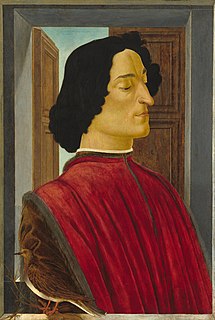 W
WGiuliano de' Medici was the second son of Piero de' Medici and Lucrezia Tornabuoni. As co-ruler of Florence, with his brother Lorenzo the Magnificent, he complemented his brother's image as the "patron of the arts" with his own image as the handsome, sporting, "golden boy."
 W
WAlexander Vladimirovich Men was a Russian Orthodox priest, theologian, biblical scholar and writer on theology, Christian history and other religions.
 W
WMichael III was Byzantine Emperor from 842 to 867. Michael III was the third and traditionally last member of the Amorian dynasty. He was given the disparaging epithet the Drunkard by the hostile historians of the succeeding Macedonian dynasty, but modern historical research has rehabilitated his reputation to some extent, demonstrating the vital role his reign played in the resurgence of Byzantine power in the 9th century.
 W
WMithridates or Mithradates VI, also known as Mithradates the Great (Megas) and Eupator Dionysius, was king of Pontus and Armenia Minor in northern Anatolia from about 120–63 BC. Mithridates is remembered as one of the Roman Republic’s most formidable and successful enemies, who engaged three of the prominent generals from the late Roman Republic in the Mithridatic Wars: Sulla, Lucullus and Pompey. He has been called the greatest ruler of the Kingdom of Pontus.
 W
WFlavius Odoacer, also spelled Odovacer or Odovacar, was a soldier and statesman of barbarian background, who deposed the child emperor Romulus Augustulus and became King of Italy (476–493). Odoacer's deposition of Romulus Augustulus is traditionally seen as marking the end of the Western Roman Empire as well as Ancient Rome.
 W
WOmar (, also spelled Umar ; Arabic: عمر بن الخطاب ʻUmar ibn al-Khaṭṭāb [ˈʕomɑr-, ˈʕʊmɑr ɪbn alxɑtˤˈtˤɑːb], "Umar, Son of Al-Khattab"; c. 584 CE – 3 November 644 CE), was one of the most powerful and influential Muslim caliphs in history. He was a senior companion of the Islamic prophet Muhammad. He succeeded Abu Bakr (632–634) as the second caliph of the Rashidun Caliphate on 23 August 634. He was an expert Muslim jurist known for his pious and just nature, which earned him the epithet Al-Farooq. He is sometimes referred to as Omar I by historians of early Islam, since a later Umayyad caliph, Umar II, also bore that name.
 W
WNew Martyr Archimandrite Philoumenos (Hasapis) of Jacob's Well, 15 October 1913 – 29 November 1979, was the Hegumen of the Greek Orthodox monastery of Jacob's Well, near the city of Samaria, now called Nablus (Neapolis), in the West Bank.
 W
WMaria Piotrowiczowa, a January insurgent, participant of the battle of Dobra, born in 1839, killed on 24 February 1863.
 W
WThe Pottawatomie massacre occurred from May 23rd and continued until May 26th, 1856, with the killings occurring on the night of the 24th and morning of the 25th. In reaction to the sacking of Lawrence, Kansas, by pro-slavery forces on May 21, and the severe attack on May 22 on Massachusetts Senator Charles Sumner for speaking out against slavery in Kansas, John Brown and a band of abolitionist settlers—some of them members of the Pottawatomie Rifles—made a violent reply. Just north of Pottawatomie Creek, in Franklin County, Kansas, they killed five pro-slavery settlers, in front of their families. This soon became the most famous of the many violent episodes of the "Bleeding Kansas" period, during which a state-level civil war in Kansas Territory was a Tragic Prelude to the American Civil War which soon followed. "Bleeding Kansas" involved conflicts between pro- and anti-slavery settlers over whether Kansas Territory would enter the Union as a slave state or a free state.
 W
WFrancisco Ramírez, also known as "Pancho" Ramírez as well as "El Supremo Entrerriano" (1786–1821), was an Argentine governor of Entre Ríos during the Argentine War of Independence.
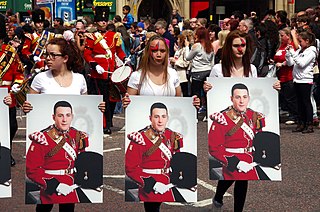 W
WOn the afternoon of 22 May 2013, a British Army soldier, Fusilier Lee Rigby of the Royal Regiment of Fusiliers, was attacked and killed by Michael Adebolajo and Michael Adebowale near the Royal Artillery Barracks in Woolwich, southeast London.
 W
WHina Saleem was a Pakistani woman resident in Italy who was killed in an honour killing, in Zanano di Sarezzo, province of Brescia, Lombardy, Italy.
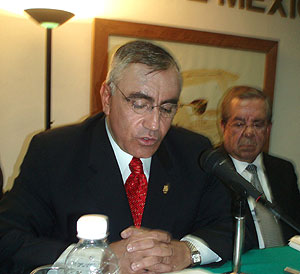 W
WJosé Manuel Nava Sánchez was a veteran journalist and editor for the Excélsior newspaper, and columnist for the national daily El Sol de México. He was stabbed to death at his home in Mexico City in 2006.
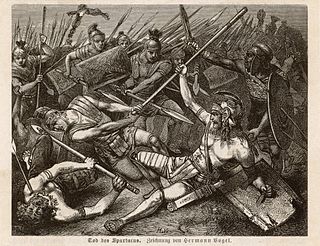 W
WSpartacus was a Thracian gladiator who, along with Crixus, Gannicus, Castus, and Oenomaus, was one of the escaped slave leaders in the Third Servile War, a major slave uprising against the Roman Republic. Little is known about him beyond the events of the war, and surviving historical accounts are sometimes contradictory. However, all sources agree that he was a former gladiator and an accomplished military leader.
 W
WSuriyothai or Mahathewi was a royal queen consort during the 16th century Ayutthaya period of Siam. She is famous for having given up her life in the defense of her husband, King Maha Chakkraphat, in a battle during the Burmese–Siamese War (1547–1549).
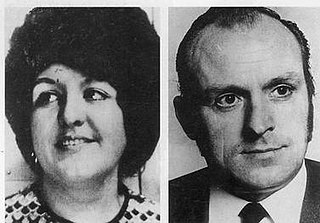 W
WThe killings of Paddy Wilson and Irene Andrews took place in Belfast, Northern Ireland on the night of 25/26 June 1973. The victims, Roman Catholic Senator Paddy Wilson and his Protestant friend Irene Andrews, were hacked and repeatedly stabbed to death by members of the "Ulster Freedom Fighters" (UFF). This was a cover name for the Ulster Defence Association (UDA), a then-legal Ulster loyalist paramilitary organisation. John White, the UFF's commander, who used the pseudonym "Captain Black", was convicted of the sectarian double murder in 1978 and sentenced to life imprisonment. White, however maintained that the UFF's second-in-command Davy Payne helped him lead the assassination squad and played a major part in the attack. Although questioned by the Royal Ulster Constabulary (RUC) after the killings, Payne admitted nothing and was never charged.